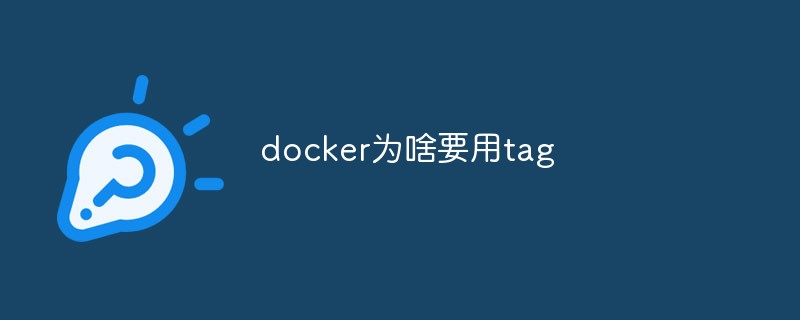
In docker, because tags can be used to mark local processes and classify them into a certain warehouse, the tag command needs to be used; the syntax of the tag command is "docker tag SOURCE_IMAGE[:TAG] original image TARGET_IMAGE[ :TAG] New Image".

The operating environment of this tutorial: linux7.3 system, docker version 19.03, Dell G3 computer.
docker tag: Mark the local image and classify it into a certain warehouse.
Syntax
docker tag [OPTIONS] IMAGE[:TAG] [REGISTRYHOST/][USERNAME/]NAME[:TAG]
Example
Mark the image ubuntu:15.10 as a runoob/ubuntu:v3 image.

The example is as follows:
1. docker images view the image
docker images

2. Tag the docker.io/centos image. Before labeling, the label of docker.io/centos defaults to latest. If it is another version, please indicate it.
For example, tag the docker.io/centos image:
docker tag docker.io/centos docker.io/centos:v1

After the execution is completed, check the new image through docker images TAG: v1
Success!
3. By analogy, when you need to develop a second version, continue to tag: v2
docker tag docker.io/centos docker.io/centos:v2

4. If for some reason, when you want When you need to roll back the version, you can create a container by specifying the label's image:
Chestnut:
Start centos:v1 version:
docker run-itd docker.io/centos:v1
After execution, view through docker ps
Found that the container has been started! 
Recommended learning: "docker video tutorial"
The above is the detailed content of Why does docker use tags?. For more information, please follow other related articles on the PHP Chinese website!
 The difference between k8s and docker
The difference between k8s and docker
 What are the methods for docker to enter the container?
What are the methods for docker to enter the container?
 What should I do if the docker container cannot access the external network?
What should I do if the docker container cannot access the external network?
 What is the use of docker image?
What is the use of docker image?
 What is the difference between mysql and mssql
What is the difference between mysql and mssql
 What does digital twin mean?
What does digital twin mean?
 Linux find command usage
Linux find command usage
 How to buy and sell Bitcoin on Huobi.com
How to buy and sell Bitcoin on Huobi.com